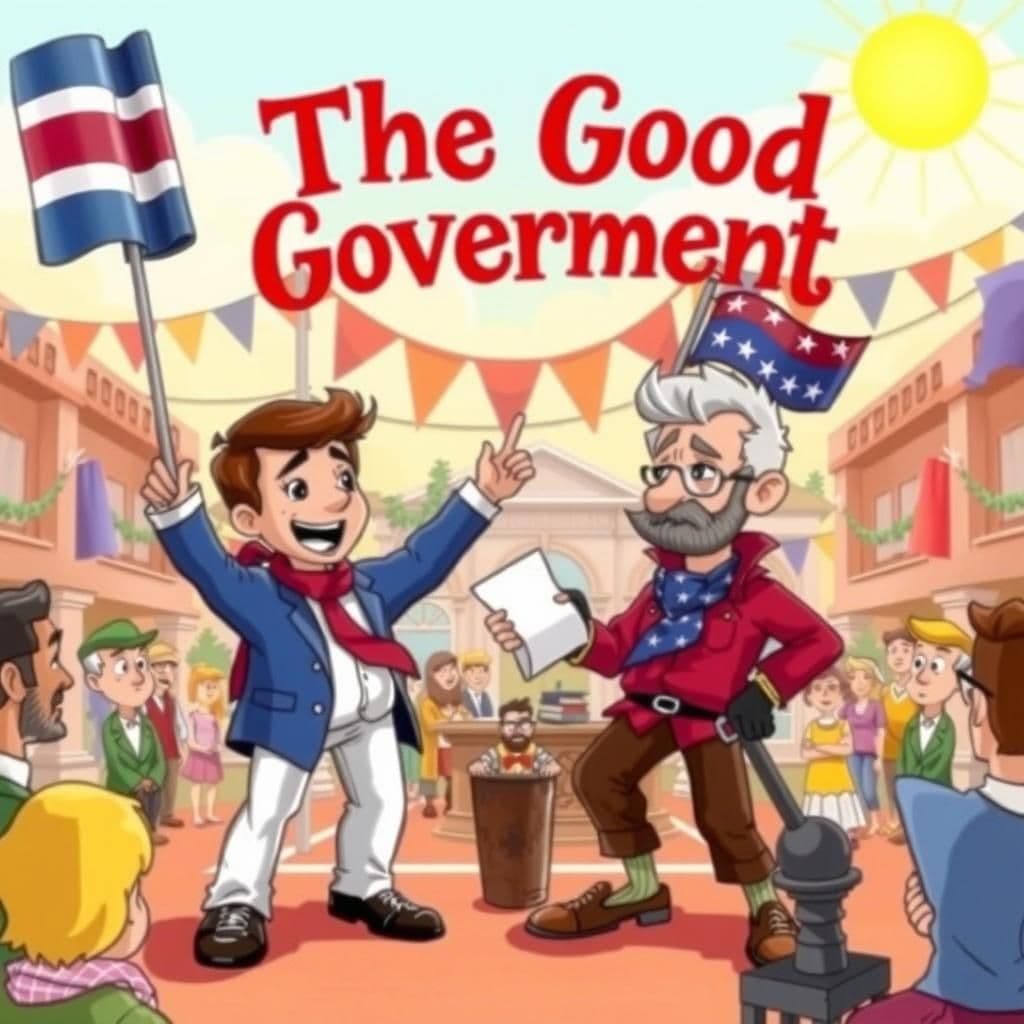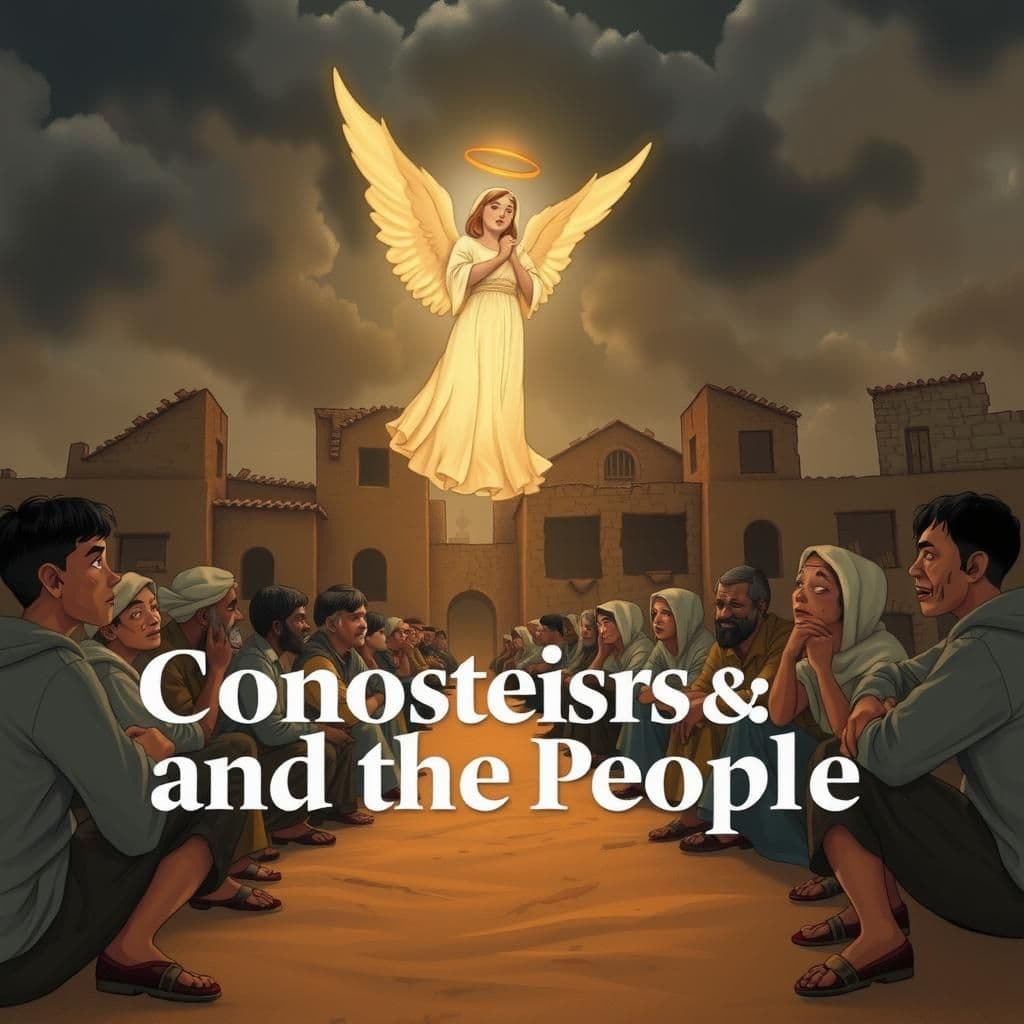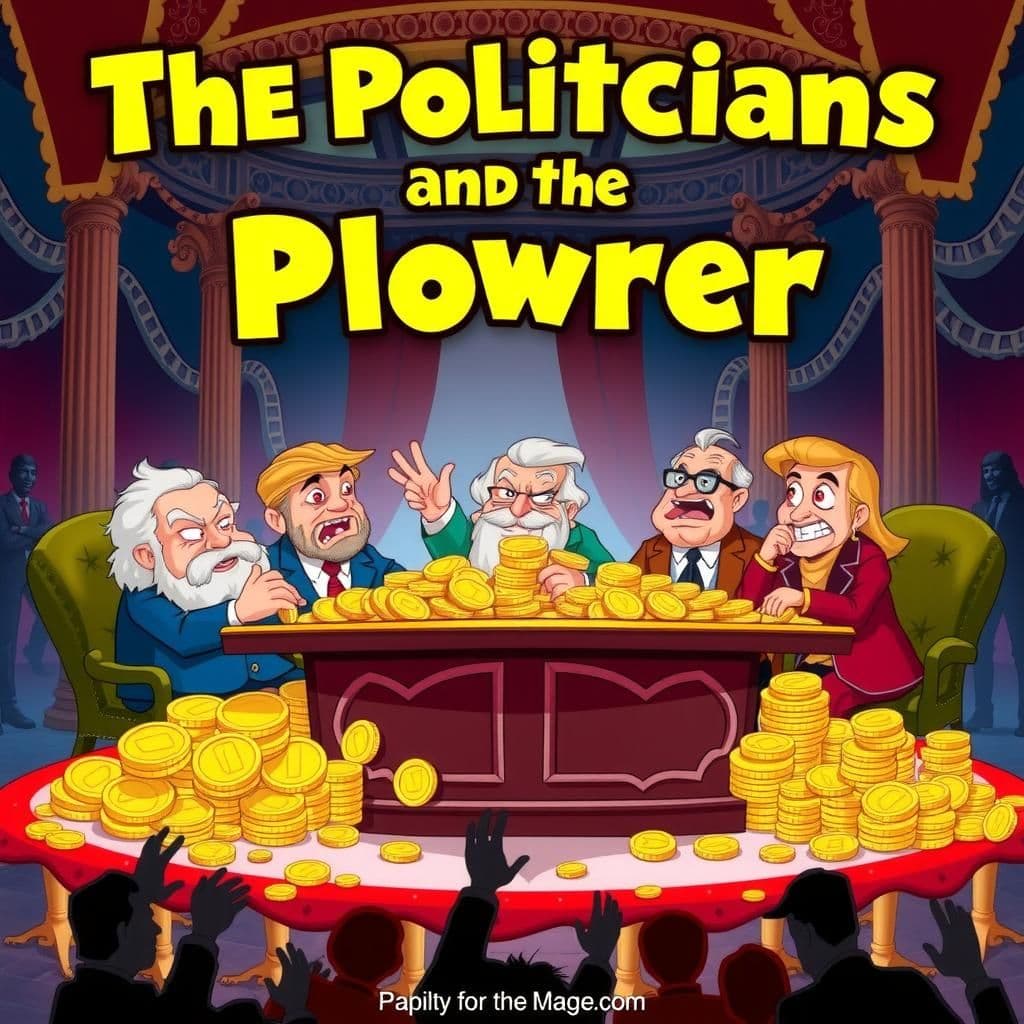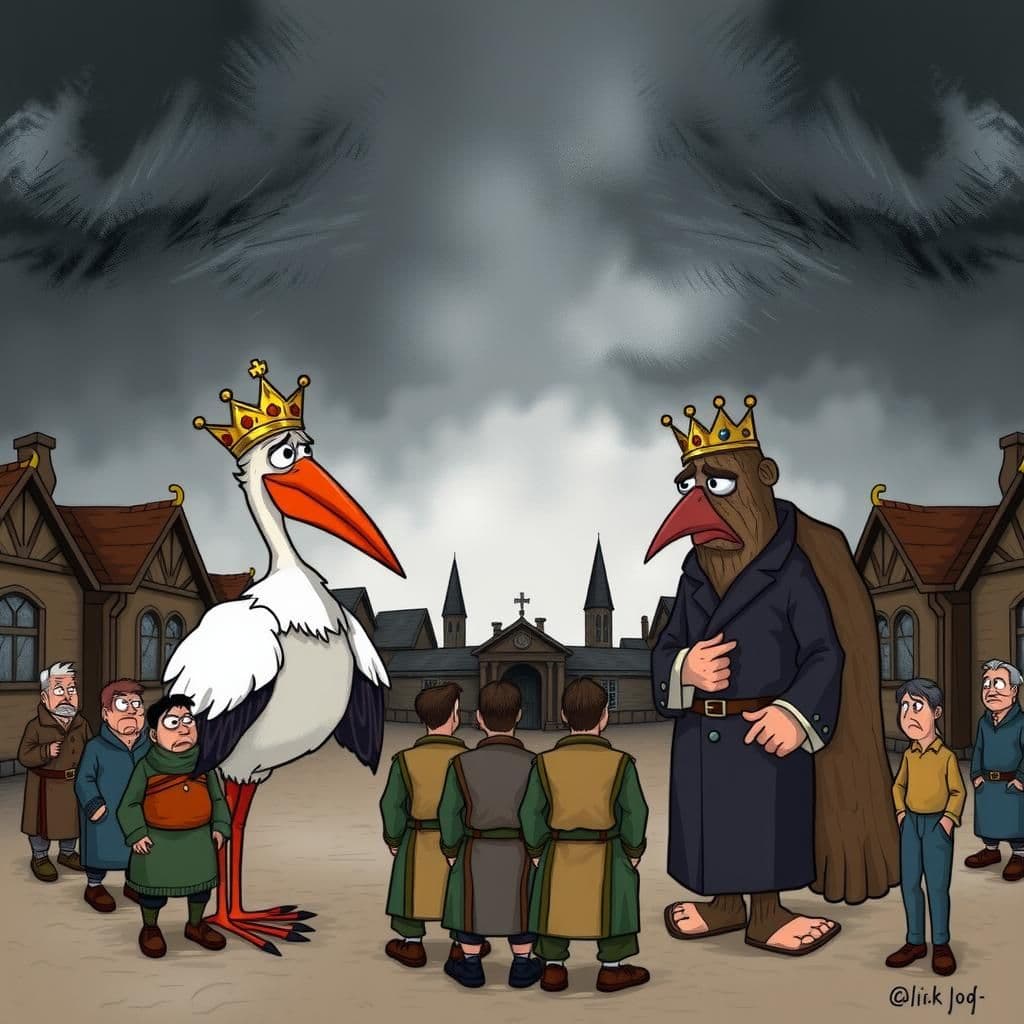The Good Government

Story Summary
In "The Good Government," a moral-based storytelling piece, a Republican Form of Government extols the virtues of democracy and freedom to a Sovereign State, which counters with complaints about its corrupt public servants, oppressive taxes, and disordered affairs. Despite the State's frustrations, the Republican government dismisses these issues, suggesting that the mere celebration of independence is enough to justify its existence. This short story serves as a value-based moral story, illustrating the disconnect between ideals and realities in governance.
Click to reveal the moral of the story
The story illustrates that the ideal of a good government may be overshadowed by its failure to address the real issues and corruption within its system, highlighting the gap between rhetoric and reality.
Historical Context
The story reflects the critical perspectives on democracy and governance that emerged during the late 19th and early 20th centuries, a time when many nations grappled with the ideals of republicanism amid political corruption and social strife. This dialogue echoes themes found in the works of authors like Mark Twain and Upton Sinclair, who satirized American politics and the disparity between lofty ideals and harsh realities. The narrative underscores the tension between the celebration of democratic values and the lived experiences of citizens facing systemic failures, resonating with contemporary critiques of governance.
Our Editors Opinion
This story highlights the disconnect between the ideals of democracy and the realities of governance, reflecting how modern societies often celebrate democratic principles while grappling with systemic corruption and inefficiency. For instance, a community may rally around the democratic process during election season, yet still face issues like political corruption and ineffective public services, prompting citizens to question whether their voices truly matter or if change is merely superficial.
You May Also Like

Congress and the People
In "Congress and the People," a simple short story with moral lessons, the impoverished populace laments their losses to successive Congresses, weeping for all that has been taken from them. An Angel observes their sorrow and learns that, despite their despair, they cling to their hope in heaven—something they believe cannot be stripped away. However, this hope is ultimately tested with the arrival of the Congress of 1889, echoing themes found in famous fables with moral teachings about resilience and faith.

The Politicians and the Plunder
In "The Politicians and the Plunder," a fable story with moral undertones, various political figures negotiate their roles in dividing power and resources, each embodying different facets of corruption and governance. The Decent Respect for Public Opinion seeks to reform prison management, while the Blotted Escutcheon and Soiled Ermine cling to their judicial ties, yet ultimately, the Cohesive Power of Public Plunder reveals that the true spoils have already been claimed by the Depth of Degradation, illustrating the pervasive moral decay in politics. This creative moral story serves as a cautionary tale about the corrupting influence of power.

King Log and King Stork
In "King Log and King Stork," a culturally significant moral story, the people, dissatisfied with a Democratic Legislature that only stole a portion of their wealth, elect a Republican government that exploits them even further. This long story with moral lessons illustrates how the new regime not only takes everything they have but also demands a promissory note secured by their very hope of death, serving as a cautionary tale about the dangers of political change without true accountability. Through this entertaining moral story, the narrative reflects the grim reality that without vigilance, the quest for better governance can lead to even greater exploitation.
Other names for this story
"Liberty's Illusion, The Democracy Dilemma, Governance Gone Awry, The State of Corruption, Echoes of Freedom, The Farce of Democracy, A Republic's Regret, The Double-Edged Sword"
Did You Know?
This story highlights the irony of political rhetoric, where the ideals of democracy and liberty are often celebrated despite the underlying corruption and dysfunction within the government, suggesting a disconnect between the lofty principles of a republic and the reality experienced by its citizens.
Subscribe to Daily Stories
Get a new moral story in your inbox every day.